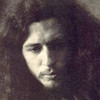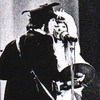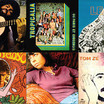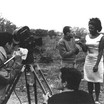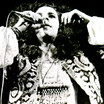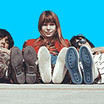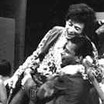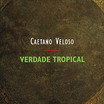Ruídos pulsativos
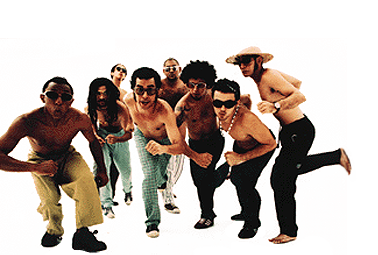
herdeiros musicais
Ever since its eruption on to the musical scene, Tropicalism has been, to a greater or lesser extent, inspiring young Brazilian musicians. Its role in opening up new musical possibilities and in breaking down barriers between musical genres and standards of quality directly and indirectly influenced the generations that followed. Its pioneering audacity at the end of the sixties allowed greater freedom for the musicians and bands that succeeded the movement.
In the eighties, for example, two divergent trends revisited the boldness of the Tropicalists. Brazilian rock and the “Paulista vanguard” communed directly with the advances made by the movement. While Brazilian rock re-ignited the debate on the influence of international pop-rock on Brazilian music, Paraná songwriter Arrigo Barnabé, principal representative of the Paulista vanguard, moved forward the irreverence, experimentalism and inventiveness of the Tropicalists.

In the nineties, the work of the Tropicalists served as a stimulus for a series of great singer-songwriters in modern MPB. Chico Science from Pernambuco state, for example, created with his band Nação Zumbi one of the strongest expressions of the musical scene in the period, using a typically Tropicalist resource: the strategic dialog between regional (such as maracatu) and universal rhythms (such as rock, funk and rap). The style was categorized as Mangue-beat and acquired the characteristics of a movement, with even a manifesto influenced by the modernist Oswald de Andrade’s proposal of cultural anthrophagy. Other current bands in Recife, such as Mombojó and Eddie, continue to use universal influences to modernize the local sound.
The syntonization with Oswaldian-Tropicalist cannibalism is also seen in other work, such as that of Carlinhos Brown, Arnaldo Antunes and Marisa Monte. It was not mere coincidence that the three created the Tribalistas (Tribalists) project, with clear Tropicalist influences, whether in the sound and the lyrics, or in the idea of a collective record among songwriters. In the same way, this legacy has also made its presence felt in their careers. The Bahian songwriter and singer Carlinhos Brown promotes, both in his music and his exaggerated appearance, a new and personal mixture of local and alien languages – Bahian Afro-reggae-rock. The Paulista Arnaldo Antunes, a popular songwriter and concretist poet, has also shown himself to be a legitimate heir to the restlessness and adventurous spirit of the revolutionary Bahian group in his solo career. Carioca Marisa Monte also follows the example of freedom in her choice of repertoire and commitment to musical innovation. Marisa gives herself freedom to interpret the most diverse genres from within and outside the country, from pop to kitsch, from avant-garde rock to traditional samba, even recording songs directly linked to Tropicalism, such as “Panis et Circensis”.
At the beginning of this new century, the influence of Tropicalism still makes itself felt. Without the need for nostalgic retrospectives, it has imposed itself, not only on Brazil but on the whole world, as one of the most innovative musical movements of the 20th century. Bands such as Tortoise, Nirvana, Stereolab and the High Lamas, and singers such as David Byrne, Beck and Sean Lennon freely admit to the direct influence of the Tropicalists’ records on their work. In Brazil, songwriters and bands such as Adriana Calcanhoto, Lenine, Pedro Luís and Parede, Los Hermanos, +2 (consisting of Caetano Veloso’s son Moreno, Domenico Lancelotti and Kassin), as well as those manifestations linked to the sounds of the urban periphery – such as rap and funk – show strong links to Tropicalism, not so much in their sound, but more in their innovative attitudes and in the breaking of the preconceptions that strangled modernization and creative freedom in Brazil in the sixties.






